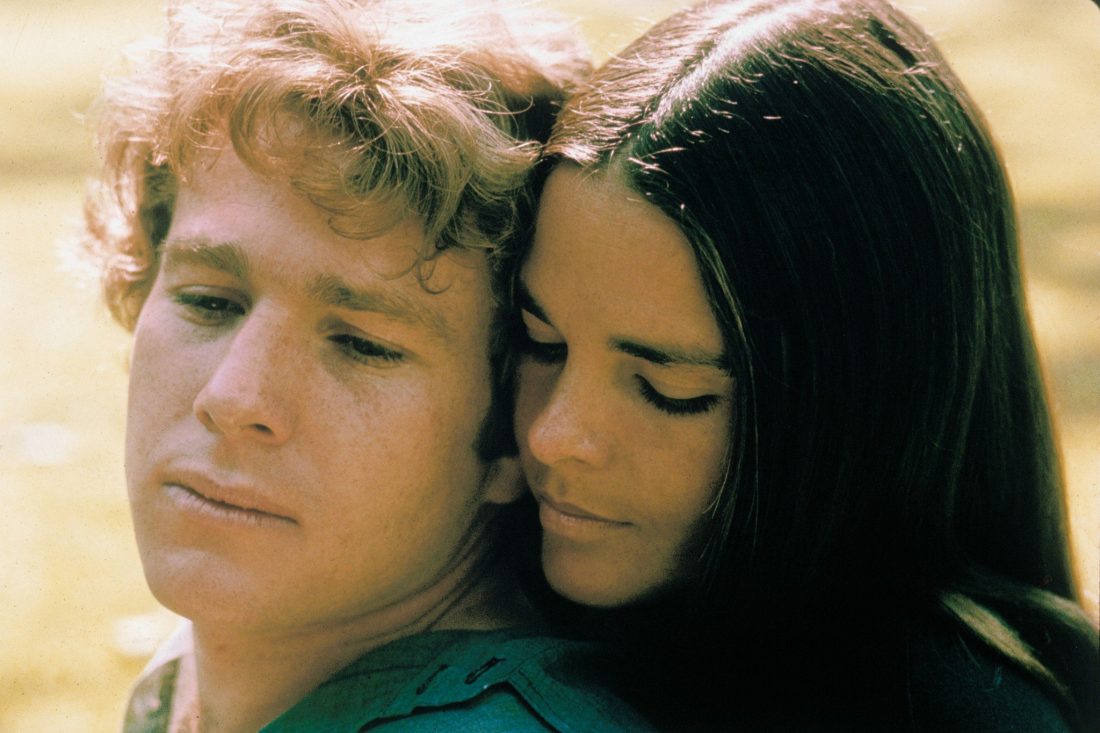New World in the Morning—Sun in Gemini May 20th—June 21st
 An agitation of conflicting communication about COVID-19 eddies and twirls across our screens. “There shall in that time be rumours of things going astray, erm, and there shall be a great confusion as to where things really are,” says the Boring Prophet in Monty Python’s Life of Brian.
An agitation of conflicting communication about COVID-19 eddies and twirls across our screens. “There shall in that time be rumours of things going astray, erm, and there shall be a great confusion as to where things really are,” says the Boring Prophet in Monty Python’s Life of Brian.
We become deafened to our own thoughts amidst the torrent of talk. Vacillating opinions deplete our analytic stamina.
The Sun moves into Gemini this week. The Gemini archetype lives within us all in our restless minds. Venus is Retrograde and conjoins the Gemini Sun (opposing Sagittarius Moon and South Node) of America’s maverick President. Venus will conjoin Boris Johnson’s Gemini Sun/Venus on August 5th. As governments and epidemiologists grapple with too many variables, the immune response to COVID-19 is still not fully understood, and there is still no definitive data on post-infection immunity. Gemini rules the nervous system and the lungs.
Robert Skidelsky, in an article entitled the Unspoken Reason for Lockdowns writes, “What “flattening the curve” really means is spacing out the number of expected deaths over a period long enough for medical facilities to cope and a vaccine to kick in.”
 As we venture into this liminal space, the road maps offered by our leaders are ambiguous. The familiar landmarks have gone. We’re speculating about fragmenting globalisation. Supply chains are sagging. Prices are higher. Cities are empty. Our ancient human instinct to gather, to touch, to hold and to kiss has lost its innocence. We’re hunkering down. We’re distancing. We’re separating.
As we venture into this liminal space, the road maps offered by our leaders are ambiguous. The familiar landmarks have gone. We’re speculating about fragmenting globalisation. Supply chains are sagging. Prices are higher. Cities are empty. Our ancient human instinct to gather, to touch, to hold and to kiss has lost its innocence. We’re hunkering down. We’re distancing. We’re separating.
The story of Gemini’s mythic twins is a story of loss and longing. Of trickery and lies. This is a story of two handsome twin brothers separated by death.
In alchemy, the process of separation isolates and defines. As we try to separate apparent truth from fiction, as we try to define our post-COVID-19 roles as colleagues, parents and partners, we may look back at what has grown from these slow days of waiting. As we knitted and baked, as we cleaned, and home-schooled our children, as we spent hours connecting on social media, as we danced around the sofa, as we anxiously watched our income dwindle, as we strained to support those we love from a distance, some of us flourished as we strengthened our bonds with those people who matter in our lives, contained in a circle of belonging. Yet for many, this has been a time to rely on the kindness of those strangers who brought food and essentials, who offered the comfort of connection during the long lonely days.
COVID-19 has brought seismic change and lingering disruption and uncertainty to our lives. For those who have not sheltered in the safety of secure and loving relationships, those who have endured the trauma of watching a loved one die, those who will not be able to pay their mortgage, or endured domestic violence, the three Ds—Divorce, Death and Destitution—are the only certainties.
 Under a cloud of obfuscation, a sequence of planets—Jupiter, Pluto, and Saturn—move Retrograde, reflective perhaps of a shift in our collective perspective. The planets mirror the grim modus operandi of change and shrinking economies as they regress through the heavens.
Under a cloud of obfuscation, a sequence of planets—Jupiter, Pluto, and Saturn—move Retrograde, reflective perhaps of a shift in our collective perspective. The planets mirror the grim modus operandi of change and shrinking economies as they regress through the heavens.
Venus (those things and people we cherish and value) is the puella in Gemini. She has vanished from the sky, her carefree spirit subdued as she moves through the dark, in Retrograde from May 13th to June 25th (Retrograde at 22° Gemini and direct at 5° degrees of Gemini.) During a Venus Retrograde cycle we may revisit those things we valued and lost, seek out second chances, repair and heal those relationships that have become entangled in assumptions or frozen silences. Venus Retrograde periods are cosmic magnifying glasses, amplifying our inherent values and intimate desires.
 Venus squares dreamy Neptune, raising our hopes high in love but also in escapism, delusion, illusion, and fantasy. She may be the victim, the rescuer. The glimmering Venus/Neptune square (May 3rd, May 20th, July 27th, and December 30th) adds a tincture of loss and longing, a heady cocktail of truth and lies, or a restless yearning for something or someone who is unattainable.
Venus squares dreamy Neptune, raising our hopes high in love but also in escapism, delusion, illusion, and fantasy. She may be the victim, the rescuer. The glimmering Venus/Neptune square (May 3rd, May 20th, July 27th, and December 30th) adds a tincture of loss and longing, a heady cocktail of truth and lies, or a restless yearning for something or someone who is unattainable.
Intoxicating Neptune is notorious for delusion and disappointment. As the music dies and the fairy dust dissolves, we fall out of love with our soul mate, or realise that our dreams have been blown off course. This will be the initiation of devastating disappointment, the searing pain of grief and unspeakable loss, or the peak experience of shedding our illusion, adjusting our vision, seeing through the mirage.
Venus Retrograde may amplify the sense of awakening from our cruise on autopilot, as we exhume our buried desires and atrophied longings and embrace each moment with renewed intensity. As we prepare to emerge into this new world, there’s no going back. The way is forward. Something greater than us is governing our lives and we must walk in this direction.
Chogyam Trungpa taught the practice of the awakened heart—“the genuine heart of sadness”, which he said was natural to us all when we allow ourselves to receive the full experience of life with open hearts. It is in this “genuine heart of sadness” that we discover our repressed grief, our forgotten anger, our thin shard of shame, our intoxicating joy and our boundless capacity to Love.
 On June 3rd, Venus aligns with the Sun, a mythic mating, a Venus “new moon”, a union that is an alembic for our inner values. This Venus Retrograde transit may expose our deeply buried desires, our failure to ask for what we need. Venus Retrograde may dredge up discord that signals just how far we have drifted off course from what we value. Upheavals in our relationships may intensify as lock-down thaws. Mars moved into Pisces (May 13th) as Venus changed direction. Mars will conjoin with Neptune on June 12th adding to our discontent, or augmenting our compassion and ability to forgive.
On June 3rd, Venus aligns with the Sun, a mythic mating, a Venus “new moon”, a union that is an alembic for our inner values. This Venus Retrograde transit may expose our deeply buried desires, our failure to ask for what we need. Venus Retrograde may dredge up discord that signals just how far we have drifted off course from what we value. Upheavals in our relationships may intensify as lock-down thaws. Mars moved into Pisces (May 13th) as Venus changed direction. Mars will conjoin with Neptune on June 12th adding to our discontent, or augmenting our compassion and ability to forgive.
 Mercury is moving through Gemini, and will unite with Venus on Friday, May 22nd (square Neptune), an invitation to be discerning about the information we ingest or pass along with an unthinking swipe. This is a time of flux, an invitation to grieve what is lost, to bring Neptunian qualities of compassion, communion, and imagination into the world we are returning to. Systemic family therapist Richard Schwartz writes, “it’s possible that this massive shock to our planetary and national systems will wake up enough leaders that we can get off the suicide train we’ve been on and create a slower, fairer, greener one for ourselves. I believe a lot of that depends on how each of us responds to this crisis.”
Mercury is moving through Gemini, and will unite with Venus on Friday, May 22nd (square Neptune), an invitation to be discerning about the information we ingest or pass along with an unthinking swipe. This is a time of flux, an invitation to grieve what is lost, to bring Neptunian qualities of compassion, communion, and imagination into the world we are returning to. Systemic family therapist Richard Schwartz writes, “it’s possible that this massive shock to our planetary and national systems will wake up enough leaders that we can get off the suicide train we’ve been on and create a slower, fairer, greener one for ourselves. I believe a lot of that depends on how each of us responds to this crisis.”
The New Gemini Moon on May 23rd may draw us back to our natural rhythm. To the moment of now. Jeff Foster, author of Falling in Love with Where you Are distils the essence of this month’s lunation: “This moment is not life waiting to happen, goals waiting to be achieved, words waiting to be spoken, connections waiting to be made, regrets waiting to evaporate, aliveness waiting to be felt, enlightenment waiting to be gained. No. Nothing is waiting. This is it. This moment is life.”
 As we reflect on the sacrifices we have made and the enormous challenges we now face, poet Rainer Maria Rilke reminds us, “let me not squander the hour of my pain.”
As we reflect on the sacrifices we have made and the enormous challenges we now face, poet Rainer Maria Rilke reminds us, “let me not squander the hour of my pain.”
Please get in touch if you would like a private astrology reading: ingrid@trueheartwork.com
New World in the Morning. Songwriter: Roger Whittaker.





 Today we casually or consciously un-couple. Today our friends have benefits and Tinder is our one-stop 24-7, pocket-sized convenience store for regret-free hook-ups with just one swipe. Ours is a Supernova Consumer Culture where our Perfectmatch.com relationships have short sell-by dates.
Today we casually or consciously un-couple. Today our friends have benefits and Tinder is our one-stop 24-7, pocket-sized convenience store for regret-free hook-ups with just one swipe. Ours is a Supernova Consumer Culture where our Perfectmatch.com relationships have short sell-by dates.
 Pluto’s transit through Leo between 1937-1958 produced the narcissistic “Me Generation” and as each new generation pushes against the ignorance and excesses of the previous one. The Divine Child (or spoilt brat) rebelled against his staid Cancerian Parents. This is the generation that has destroyed vast tracts of pristine forest and coastline to erect golf courses and holiday resorts or set off to “find themselves”. This is the generation of the hedonistic “Rock Star” and the individual who spends years lying on the therapist’s couch talking about his unhappy childhood. This is the generation obsessed with staying forever young. This is the generation that divorces because they deserve to be happy! Baby Boomer, and author of the bestselling, Something More, Sarah Ban Breathnach says it all: “Do I deserve to be happy? Damn right I do. Am I ever going to be unhappy again? Not if I can help it.” … now you can reshape, reclaim and recreate the world in our own image.”
Pluto’s transit through Leo between 1937-1958 produced the narcissistic “Me Generation” and as each new generation pushes against the ignorance and excesses of the previous one. The Divine Child (or spoilt brat) rebelled against his staid Cancerian Parents. This is the generation that has destroyed vast tracts of pristine forest and coastline to erect golf courses and holiday resorts or set off to “find themselves”. This is the generation of the hedonistic “Rock Star” and the individual who spends years lying on the therapist’s couch talking about his unhappy childhood. This is the generation obsessed with staying forever young. This is the generation that divorces because they deserve to be happy! Baby Boomer, and author of the bestselling, Something More, Sarah Ban Breathnach says it all: “Do I deserve to be happy? Damn right I do. Am I ever going to be unhappy again? Not if I can help it.” … now you can reshape, reclaim and recreate the world in our own image.” Divorce is The Boomers’ legacy. And even in mid and late life this star-dust golden generation makes it up as they go along.
Divorce is The Boomers’ legacy. And even in mid and late life this star-dust golden generation makes it up as they go along. y opt for a LAT arrangement – Living Alone Together – with partners they may despise at worse or tolerate at best.
y opt for a LAT arrangement – Living Alone Together – with partners they may despise at worse or tolerate at best.







